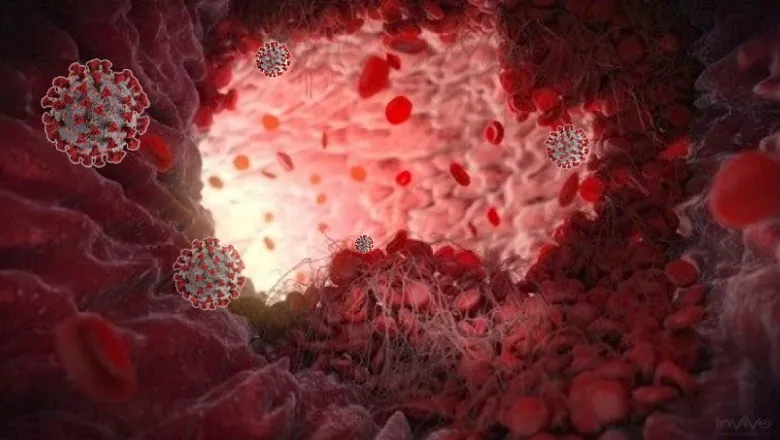COVID-19 is a serious illness. Our research shows that interleukin-6 antagonists reduce deaths from COVID-19, i.e. save lives, and prevent progression to severe illness necessitating breathing support with a ventilator. Further, interleukin-6 antagonists appear even more effective when used alongside corticosteroids. Our research findings reflect the incredible research effort from scientists worldwide since the start of the pandemic. On a personal note, I am grateful to the patients and their families for their willingness to participate in research during these challenging times.
Prof Manu Shankar-Hari, Professor of Critical Care Medicine at the School of Immunology & Microbial Sciences
06 July 2021
Interleukin-6 antagonists improve outcomes in hospitalised COVID-19 patients
Treating hospitalised COVID-19 patients with drugs that block the effects of an overreactive immune system reduces the risk of death, new research has found.

The findings, published today in the Journal of the American Medical Association (JAMA) have prompted new World Health Organization (WHO) recommendations to use these therapies, known as interleukin-6 antagonists, in patients with severe or critical COVID-19 along with corticosteroids.
The study which was coordinated by WHO in partnership with King’s, University of Bristol, University College London and Guy’s and St Thomas’ NHS Foundation Trust, found that interleukin-6 antagonists were most effective when administered with corticosteroids. In hospitalised patients, administering one of these drugs in addition to corticosteroids reduces the risk of death by 17%, compared to the use of corticosteroids alone. In patients not on mechanical ventilation, the risk of mechanical ventilation or death is reduced by 21%, compared to the use of corticosteroids alone.
In severely ill COVID-19 patients, the immune system overreacts, generating cytokines such as interleukin-6. Clinical trials have been testing whether drugs that inhibit the effects of interleukin-6, such as tocilizumab and sarilumab, benefit hospitalised patients with COVID-19.
This analysis included information on 10,930 patients, of whom 6,449 were randomly assigned to receive interleukin-6 antagonists and 4,481 to receive usual care or placebo.
Results showed that the risk of dying within 28 days is lower in patients receiving interleukin-6 antagonists. In this group, the risk of death is 22% compared with an assumed risk of 25% in those receiving only usual care.
Importantly, improvements in outcomes were greater in patients who also received corticosteroids. In these patients, the risk of dying within 28 days is 21% in patients receiving interleukin-6 antagonists compared with an assumed 25% in patients receiving usual care. This means that for every 100 such patients, four more will survive.
The study also looked at the effect of these drugs on whether patients progressed to mechanical ventilation or death. Among patients also treated with corticosteroids, the risk was found to be 26% for those receiving interleukin-6 antagonists compared with an assumed 33% in those receiving usual care. This means that for every 100 such patients, 7 more will survive and avoid mechanical ventilation.
Dr Janet Diaz, Lead for Clinical management, WHO Health Emergencies, said: “Bringing together the results of trials conducted around the world is one of the best ways to find treatments that will help more people survive COVID-19. We have updated our clinical care treatment guidance to reflect this latest development. While science has delivered, we must now turn our attention to access. Given the extent of global vaccine inequity, people in the lowest income countries will be the ones most at risk of severe and critical COVID-19. Those are the people these drugs need to reach.”
